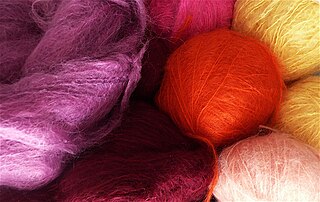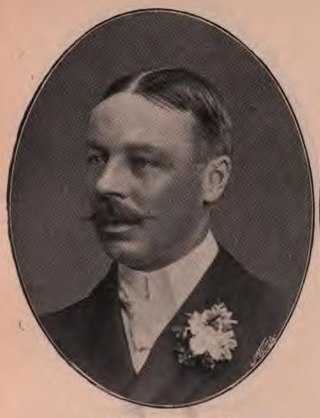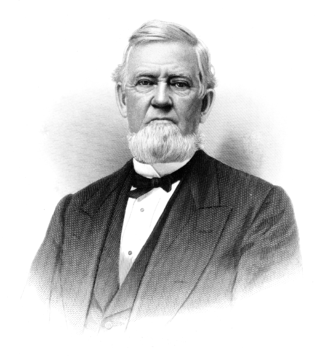
Worsted is a high-quality type of wool yarn, the fabric made from this yarn, and a yarn weight category. The name derives from Worstead, a village in the English county of Norfolk. That village, together with North Walsham and Aylsham, formed a manufacturing centre for yarn and cloth in the 12th century, when pasture enclosure and liming rendered the East Anglian soil too rich for the older agrarian sheep breeds. In the same period, many weavers from the County of Flanders moved to Norfolk. "Worsted" yarns/fabrics are distinct from woollens : the former is considered stronger, finer, smoother, and harder than the latter.

Mohair is a fabric or yarn made from the hair of the Angora goat. Both durable and resilient, mohair is notable for its high luster and sheen, and is often used in fiber blends to add these qualities to a textile. Mohair takes dye exceptionally well. It feels warm in winter as it has excellent insulating properties, while its moisture-wicking properties allow it to remain cool in summer. It is durable, naturally elastic, flame-resistant and crease-resistant. It is considered a luxury fiber, like cashmere, angora, and silk, and can be more expensive than most sheep's wool.

Black Dyke Band, formerly John Foster & Son Black Dyke Mills Band, is one of the oldest and most well-known brass bands in the world. It originated as multiple community bands founded by John Foster at his family's textile mill in Queensbury, West Yorkshire in the mid-19th century. The ensemble has become prominent in competitive band championships and through recordings for film and television.

The spinning jenny is a multi-spindle spinning frame, and was one of the key developments in the industrialisation of textile manufacturing during the early Industrial Revolution. It was invented in 1764-1765 by James Hargreaves in Stan hill, Oswaldtwistle, Lancashire in England.

Crêpe, also spelled crepe or crape, is a silk, wool, or synthetic fiber fabric with a distinctively crisp and crimped appearance. The term "crape" typically refers to a form of the fabric associated specifically with mourning. Crêpe was also historically called "crespe" or "crisp".

Queensbury is a village in the metropolitan borough of Bradford, West Yorkshire, England. Perched on a high vantage point above Halifax, Clayton and Thornton and overlooking Bradford, Queensbury is one of the highest parishes in England, with views beyond the West Yorkshire conurbation to the hills of Brontë Country and the Yorkshire Dales to the north and north west. Its population of 8,718 in 2001 increased to 16,273 in the 2011 Census.
The American Woolen Company is a designer, manufacturer and distributor of men’s and women’s worsted and woolen fabrics. Based in Stafford Springs, Connecticut, the company operates from the 160-year-old Warren Mills, which it acquired from Loro Piana SpA in June 2014.

The Bernat Mill, also known as Capron Mill, and later Bachman Uxbridge Worsted Company, was an American yarn mill in Uxbridge, Massachusetts, that was for the most part destroyed by fire on July 21, 2007.

Moxon Huddersfield Ltd is a high-end British textile manufacturer of luxury worsted and woollen suiting fabrics. It is located at Yew Tree Mills, Holmbridge, near Holmfirth, Kirklees in Yorkshire.
An S number on the label of wool suits or other tailored apparel, wool fabric, or yarn, indicates the fineness of the wool fiber used in the making of the apparel, as measured by its maximum diameter in micrometres. Fiber fineness is one of the factors determining the quality and performance of a wool product. In recent years it has also become an important marketing device used by many mills, garment makers, and retailers. The S number appears as a plural with an s or 's following the number, such as 100s or 100's.

Briggs Priestley was an English cloth manufacturer and Liberal Party politician from Bradford in West Yorkshire.

Bradford Industrial Museum, established 1974 in Moorside Mills, Eccleshill, Bradford, United Kingdom, specializes in relics of local industry, especially printing and textile machinery, kept in working condition for regular demonstrations to the public. There is a Horse Emporium in the old canteen block plus a shop in the mill, and entry is free of charge.
Philip Staveley Foster was a Conservative Party politician in the United Kingdom.

Colonel William Henry Foster DL JP was a British businessman and Conservative Party politician, who owned the Black Dyke Mills in the West Riding of Yorkshire and lived in Hornby Castle in Lancashire. He sat in the House of Commons from 1895 to 1900.

Spring Hall, also known as Spring Hall Mansions, is a mansion situated off the Huddersfield Road, Halifax, West Yorkshire. A house had been built on the site by 1614, but it was demolished in 1870 leaving only the cellars. It was rebuilt in Gothic Revival style and completed in 1871 to a larger ground plan by architects James Mallinson and William Swinden Barber for Tom Holdsworth.

Darius Goff was one of the foremost textile manufacturers in the United States and a leading citizen of Pawtucket, Rhode Island. He is known for introducing the manufacture of worsted braids and mohair plush upholstery into the United States.
Horrockses, Crewdson & Co. was a textile company based in Preston, Lancashire. The company was originally formed in 1791 under the name of Horrocks. Over the centuries, the name of the company changed with the involvement of various business partners and when the company merged with others.
Pranker Mills, also known as the Iroquois Mills, is a former American textile mill located in Saugus, Massachusetts that was in operation from 1822 to 1915.
John Wood (1793–1871) was an English manufacturer in Bradford, a leading spinner of worsted. He is now remembered as a factory reformer associated with Richard Oastler, who campaigned for employment standards.

Sunny Bank Mills is a former textile mill, which specialised in worsted cloth, set in 10 acres of land located on Town Street, Farsley, Leeds, England. Since 2010, it has been developed as a business and artistic community, with an exhibitions gallery selling fine art by local artists; a textile and local history archive; shops, cafés, artist studios; as well as outdoor spaces. It is run by the Gaunt family who took ownership in 1943. The archive was awarded Archive Community Accreditation by West Yorkshire Archive Service in January 2021.
















